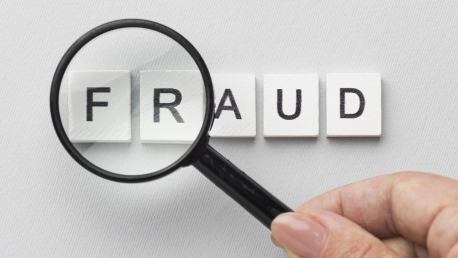As threats of fraud continue to climb, organizations across finance, law, taxation, and government sectors are on high alert to protect against complex scams and illicit activities. With an uptick in Suspicious Activity Reports and cunning email schemes, it’s clear that the defense against fraud must be a priority, encompassing financial security, reputation, and legal compliance. Understanding the depth and motivation behind fraud is crucial for organizations to reinforce their risk management and deploy robust countermeasures. A proactive and stringent approach is essential to maintain integrity and secure operations against sophisticated threats. Let us delve into the critical elements of fraud prevention and the importance of unwavering vigilance in this technologically advanced era.
Understanding Fraud Risk and Its Impact
Fraud risk poses significant consequences, extending beyond financial damage to trust erosion and legal implications. Organizations worldwide lose an estimated 5% of their revenue to fraud each year, according to the Association of Certified Fraud Examiners, reflecting the need for an urgent and informed response to the escalating problem.
The ‘Fraud Triangle’ and Motivations Behind Fraud
At the heart of preventing fraudulent behavior is understanding the ‘Fraud Triangle’—the convergence of pressure, opportunity, and rationalization that leads to deceitful activity. By addressing these factors, organizations can devise strategies that deter fraud, protecting their assets and reputation.
Types of Fraud Risk: External and Internal
Fraud takes many forms, with threats stemming from both within and outside an organization. Identifying and preventing the varied forms of internal and external fraud is key to a comprehensive defense strategy.
The High Costs of Fraud for Businesses
The repercussions of fraud for businesses, particularly small firms with less financial resilience, can be severe. Beyond immediate monetary loss, fraud can damage a company’s reputation and lead to hefty penalties due to non-compliance with regulations.
Proactive Fraud Risk Management Approaches
Facing a landscape riddled with fraud risks, a forward-thinking and preventative strategy is necessary. Understanding and preparing for operational and strategic risks is vital for a comprehensive risk management system.
Benefits of a Strong Fraud Risk Management Program
A robust fraud risk management program is essential in reducing financial loss, ensuring regulatory compliance, and maintaining a vigilant workforce. It reinforces ethical behavior, supports good governance, and is foundational to a company’s long-term success.
Navigating the Challenges of Fraud Risk Management
The complexity of addressing fraud risk calls for strong internal controls, continuous employee education, and a dedicated resource allocation. Organizations must commit to defending against the sophistication of criminal activities.
Embracing Technology in Fraud Detection
Organizations must utilize advanced tools like artificial intelligence to keep up with tech-savvy fraudsters while maintaining a focus on the foundational principles of fraud prevention and detection. A blended approach ensures a dynamic and thorough defense strategy.
Preparing for Future Trends in Fraud Risk
With the ever-evolving nature of fraud, particularly concerning synthetic identities, organizations must be agile and innovative in their anti-fraud strategies. Keeping up with emerging trends and investing in advanced technologies is key to building a resilient defense that can evolve alongside the threat landscape.









